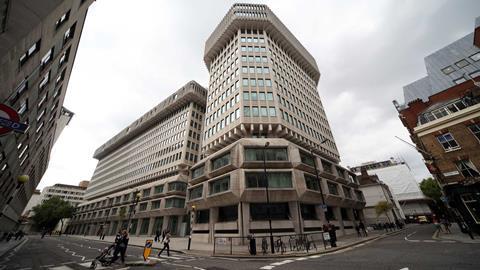A tribunal today heard that the government cannot publish full Whitehall submissions to the Independent Review of Administrative Law, because ministers and officials are considering further judicial review reforms.
Public Law Project is challenging a decision by the Information Commissioner’s Office not to require the Ministry of Justice to disclose submissions made by government departments to the Independent Review of Administrative Law, which was led by Lord Faulks QC.
This morning, the First-Tier Tribunal (General Regulatory Chamber) heard opening submissions from counsel representing PLP and the justice secretary. Richard Mason, a deputy director in the Ministry of Justice’s constitutional policy division, was also cross-examined.
Clive Sheldon QC, for the justice secretary, told the tribunal that ‘as Mr Mason explains, the documents continue to be an important resource for the Ministry of Justice in considering future policy options for judicial review’.
Mason was subsequently pressed on this by Gemma White QC, for Public Law Project.
‘What you said [in your witness statement] about officials continuing to explore options, you have said the submissions continue to be used. What options continue to be explored and how?’, White asked.
Mason replied: ‘I think, at least in open [session], it would not be appropriate for me to answer that as fully as I am able to. But the previous lord chancellor and current lord chancellor have talked about reform in judicial review and constitutional work more broadly as being an iterative process. Work would continue. Work does continue.’
Mason said some information was in the public domain, referencing an interview that Dominic Raab gave to the Sunday Telegraph about a ‘mechanism for identifying cases, judgments in courts which may not have been quite right and how they may be identified.
‘That’s one idea that he has said publicly as being interested in looking at. Nothing else is yet in the public domain.’
The tribunal also heard that comments by previous lord chancellor Robert Buckland to the House of Common public administration and constitutional affairs committee on 8 December 2020 were ‘not consistent’ with a decision Buckland had recently made.
Buckland had told the committee: ‘There’s been a call for evidence that IRAL have conducted. It’s a matter for them with regard to the information they have received as to how they wish to present that. I’m not going to get into pre-judging how they might want to deal with the body of evidence they have achieved. Frankly, independence has to involve the process as well rather than me dictating to that particular body what they should do with the material they have obtained.’
The tribunal heard today that in late November 2020, in response to advice from officials, Buckland agreed that he would return to the issue on ‘whether and how to’ release Whitehall submissions once Lord Faulks’ report had been received, including consideration of whether these could undermine the principle of cabinet collective responsibility.
Mason said: ‘All I would say is what the lord chancellor said in that hearing on this issue is not consistent with the decision he had made, not consistent with conversations that had been going on.’
On conversations with Lord Faulks about the contents of the report, Mason said: ‘Lord Faulks was clear he would like maximum transparency but he understood the government would want to look at quotes from those 15 [Whitehall departments] that he wanted to use and the government/Ministry of Justice would have to think about what quotes has he taken from the government submissions and if it’s ok to use them, should they be attributed.
‘The IRAL report was published on 18 March 2021. All of the quotes from the government departments remained in. We checked with government departments, “Look, Lord Faulks wants to use this quotation. Is that OK?” They were also asked about attribution. We came to the view, or ministers came to the view, that the quotations that Lord Faulks wanted to use should all stand but they should not be attributed.’
Just after midday the hearing went into a closed evidence session. White highlighted points Public Law Project wished the tribunal to pick up with Mason during the closed session.
The hearing continues.



























